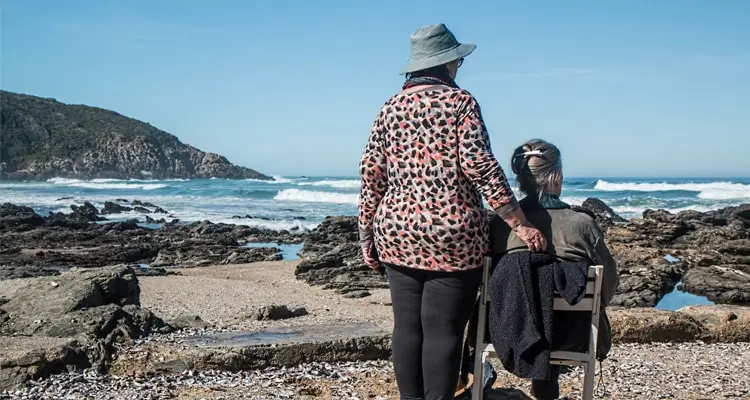
Agoraphobia, a complex anxiety disorder characterized by the fear of being in places where escape might be difficult, often takes a unique toll on seniors. As individuals age, the vulnerability to this condition can increase due to various physical and psychological changes. Understanding agoraphobia and its triggers is essential, but real empowerment comes from prevention. Agoraphobia prevention tips can be the keys to safeguarding seniors from this debilitating fear, enabling them to live more comfortably and confidently in their golden years. By focusing on signs, early awareness, adaptive strategies, and compassionate support, we can pave the way for a life less restricted by fear and anxiety for our elderly loved ones.
Why Seniors Are Vulnerable
Seniors are notably vulnerable to developing agoraphobia, and this susceptibility can be attributed to a combination of age-related factors and specific triggers inherent to older age. As individuals transition into their golden years, physiological changes, like diminished sensory capabilities, can make the external environment seem overwhelming or threatening.
Furthermore, cognitive shifts may reduce their ability to process and cope with stress, making them more reactive to perceived threats. In addition to these inherent age-related changes, seniors often face a series of life events and conditions that can act as triggers. The loss of loved ones, declining health, reduced mobility, and even certain medications can heighten anxiety levels. These factors, combined with an increasingly isolated lifestyle that many seniors experience, create a perfect storm for the onset of agoraphobia.
Here Are 7 Agoraphobia Prevention Tips Tailored for Seniors
1. Regular Mental Health Check-ups
Prioritizing mental health check-ups in senior years is crucial for the early detection and management of agoraphobia. Routine screenings help identify symptoms and triggers, allowing seniors to collaborate with professionals on preventive measures. Establishing a rapport with a mental health expert equips them with tailored strategies and ongoing support. Essentially, these evaluations serve as a preventive tool and a safety net, ensuring seniors have the guidance needed to address agoraphobia effectively.
2. Stay Socially Connected
Maintaining social connections is vital for seniors battling agoraphobia. Engaging in social activities counteracts feelings of isolation, a primary trigger for anxiety disorders. By staying connected with family, friends, and community groups, seniors bolster their emotional health and build resilience against agoraphobia’s constraints. Active social involvement not only provides a sense of belonging but also motivates seniors to explore diverse settings. Ultimately, strong social ties offer a therapeutic approach to both prevent and manage agoraphobia in the elderly.
3. Safe and Familiar Environments
Familiar environments are crucial in helping seniors manage agoraphobia. Such surroundings offer comfort and reduce anxiety by providing a sense of control. Knowing escape routes and layouts minimizes panic and fear. Starting exposure to new places from these safe bases enables a gradual introduction to unfamiliar settings, broadening seniors’ comfort zones over time. Prioritizing these environments serves as both an immediate relief and a foundation for therapeutic strategies against agoraphobia.
4. Practice Relaxation Techniques
For seniors with agoraphobia, relaxation techniques like deep breathing, progressive muscle relaxation, and guided imagery are vital. These practices mitigate anxiety’s physical and emotional effects, providing calmness and grounding during panic episodes. Especially beneficial for seniors due to age-accentuated physiological responses, these techniques offer a self-directed means to manage agoraphobia symptoms and improve overall well-being.
5. Engage in Physical Activity
For seniors with agoraphobia, physical activity, like walking or tai chi, provides notable benefits. These exercises enhance physical health while releasing mood-lifting endorphins that alleviate anxiety. Regular movement disrupts agoraphobia’s avoidance patterns, fostering positive connections with the external world. Establishing an exercise routine imparts structure and purpose to their day. Thus, the combined mental and physical advantages make physical activity a vital approach to mitigate agoraphobia’s impacts in seniors.
6. Limit Stimulants
Stimulants, including caffeine and certain medications, can amplify anxiety and agoraphobia symptoms in seniors. These heightened feelings can resemble or worsen agoraphobia’s effects. Similarly, nicotine and some over-the-counter drugs can have comparable impacts. By limiting or avoiding these stimulants, seniors can maintain emotional stability. It’s essential for them to be informed and seek advice from healthcare professionals regarding potential stimulants in their medications to ensure mental well-being.
7. Join Local Support Groups
Support groups provide seniors with agoraphobia a platform to share experiences and learn from others on similar paths. These forums empower them with resilience stories and expert-led discussions on symptom management. The community spirit in such groups lessens feelings of isolation, serving as a beacon during challenging times. For seniors, actively participating in these groups is a pivotal step toward embracing and adeptly managing their agoraphobia.
Therapy for Agoraphobia at Blue Moon Senior Counseling
At Blue Moon Senior Counseling, therapy for agoraphobia stands as a beacon of hope and healing. Recognizing the unique challenges seniors face, our dedicated professionals tailor therapeutic interventions to resonate with their experiences and needs. We believe that with the right guidance, every senior can regain the confidence to live life fully, unshackled from the constraints of agoraphobia. Our commitment goes beyond immediate relief; we aim to empower our seniors with tools and strategies that ensure lasting well-being. Reach out today to explore how Blue Moon Senior Counseling can be a turning point in your battle against agoraphobia, illuminating a path toward renewed confidence and well-being.




